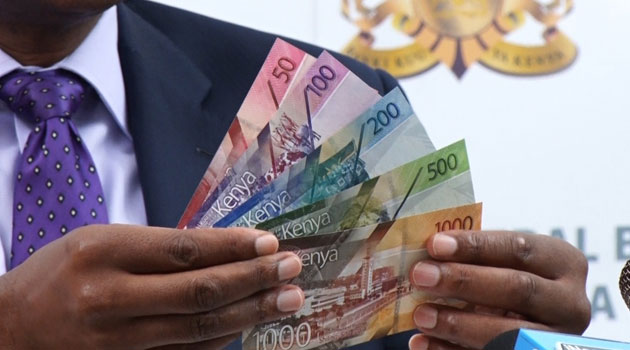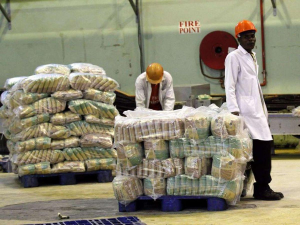CBK Governor Patrick Njoroge displays some of the new designs for the Kenyan currency notes/ CBK website.
NAIROBI, Kenya Nov 18 – The Kenya shilling fell to an all-time low to trade at Sh112.07 against the dollar attributed to weak inflows and strong dollar demand across sectors.
The weakening of the shilling signalling an increase in prices of imported goods in the country as well as increase in debt costs.
Some of the imports affected include cars, electronics and second-hand clothes, and electricity among others due to petroleum products imports.
Major Kenya imports include petroleum products, wheat, second-hand clothes, motor vehicles, vegetable oils and industrial machinery.
On the other hand, exporters such as tea and coffee producer are set to smile all the way to the bank as the weakening of the shilling is expected to boost revenue.
Kenya Auto Bazaar Association Secretary General Charles Munyori told Business Daily, that used car prices in Kenya have risen by 33 percent over the past six months due to the weak shilling.
“The dollar was around 106 in April and we are currently buying it between 112 and 114 depending on the bank. So, if you are buying a car worth $10,000 that is Sh80, 000 more,” said Munyori.
Rising demand for goods following the reopening of the economy last month is also to blame as it translated to higher dollar demand from importers.
Demand for consumer goods has particularly gone up now that there is optimism about the recovery of the economy, which expanded by 10.1 per cent in the second quarter of this year. Consumers had been reluctant to spend during the worst of the Covid-19 months due to uncertainty over jobs and income.
There are also higher imports of industrial goods as manufacturers — who are among the biggest dollar buyers in the market— race to fill demand amid a return to full production activity and longer operating hours.
Imports went up by 27 percent to hit Sh1.34 trillion in the eight months to August compared to the corresponding period in 2020.

















